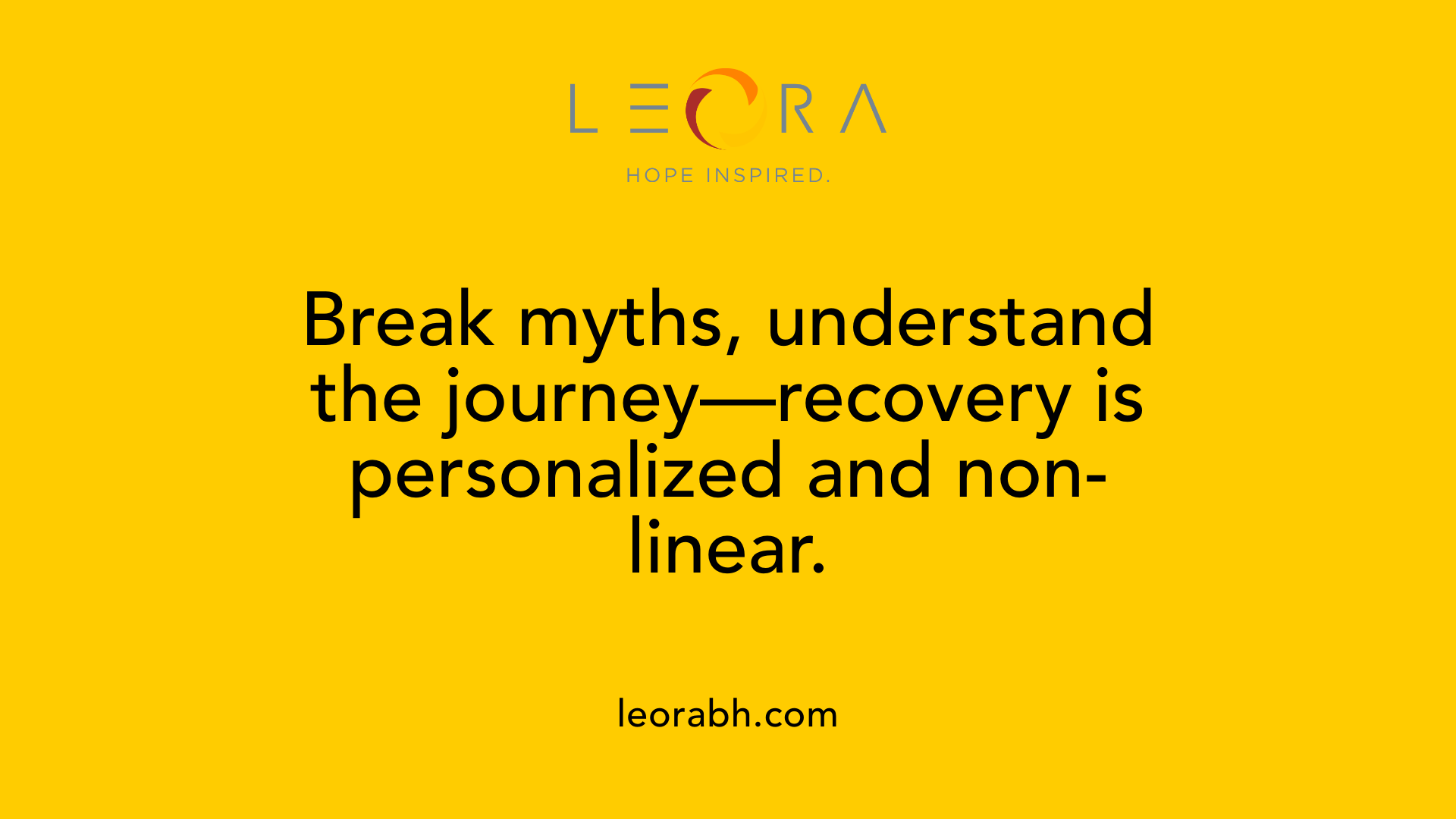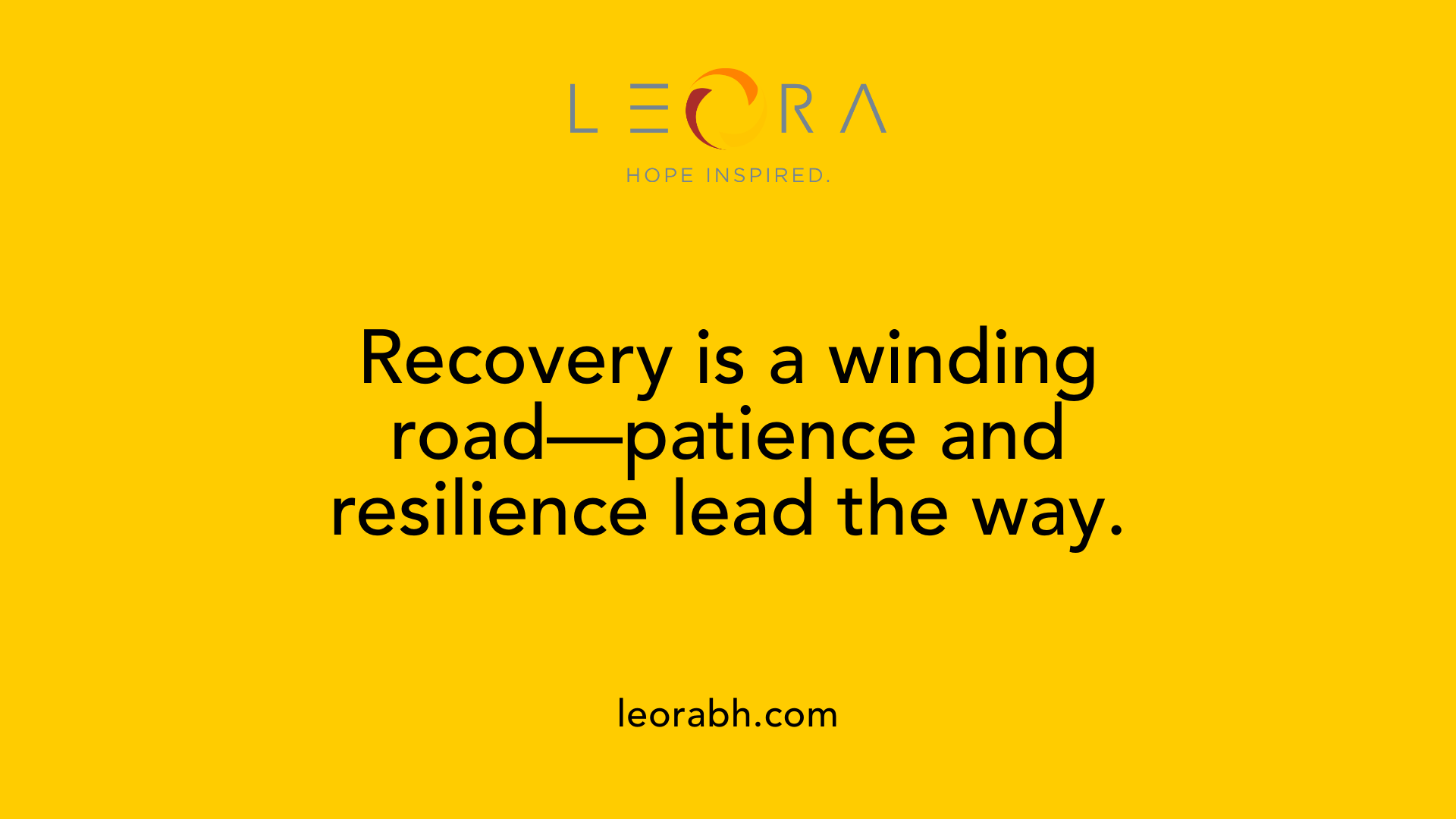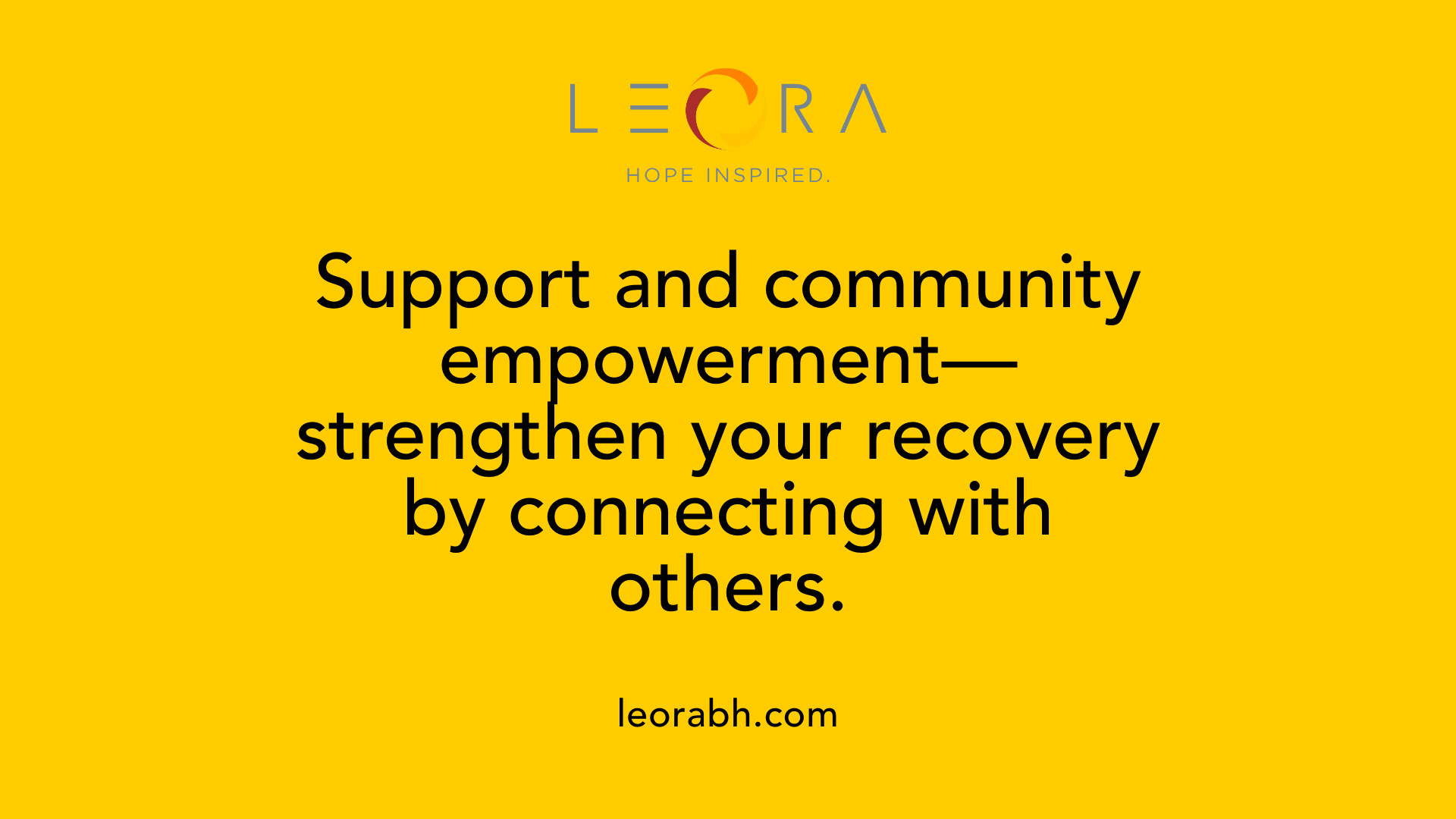Why Recovery Looks Different for Everyone
The Uniqueness of Every Healing Journey: Embracing Individual Paths to Recovery
Understanding the Diversity of Recovery Processes
Recovery from addiction and mental health challenges is a deeply personal journey that varies profoundly from one individual to another. It encompasses a wide array of experiences shaped by personal circumstances, biological factors, and social environments. Recognizing this diversity is essential for fostering an empathetic, supportive, and effective approach to healing. This article explores why recovery looks different for everyone, the challenges and misconceptions associated with it, and the importance of personalized, holistic pathways.
What Does Recovery Look Like for Different People?
What does recovery look like for different people?
Recovery is a highly personal process that varies widely from one individual to another. For some, it involves completely abstaining from substances and embracing a lifestyle of sobriety. For others, it may mean learning to manage their use in a controlled, harm-reduction approach.
Recovery often appears as a journey of growth and healing that can be non-linear, meaning it includes progress, setbacks, and periods of reflection. It is common for individuals to experience relapses or revisit previous stages as they navigate their path. This process requires patience, self-compassion, and resilience.
Each person’s goals and circumstances influence what recovery looks like. Some focus on emotional and mental well-being, aiming for stability and self-acceptance. Others prioritize rebuilding relationships or gaining a sense of purpose. Success is not solely defined by abstinence but by personal fulfillment, health, and emotional balance.
Building supportive habits plays a vital role. Regular self-care, mindfulness, grounding techniques such as deep breathing or journaling, and participation in community groups all contribute to sustained recovery. Support systems, whether through peer groups, mental health professionals, or family, provide encouragement and accountability.
Holistic, individualized approaches that address mind, body, spirit, and community make recovery a dynamic process. Each person’s journey involves understanding their unique needs and leveraging various resources tailored to their circumstances.
Ultimately, recovery is a lifelong voyage of reclaiming agency, cultivating resilience, and fostering hope, self-awareness, and self-acceptance. It involves ongoing effort, learning, and growth, emphasizing that there is no one-size-fits-all path but a multitude of routes to healing.
Understanding Challenges and Misconceptions in Recovery

What challenges and misconceptions exist about recovery?
Many hidden challenges and misconceptions surround the process of recovery from substance use disorders. One prevalent misunderstanding is that recovery follows a clear, straight path. In truth, it is often messy, winding, and highly personalized to each individual. People may struggle with fluctuations in their progress, experiencing both advances and setbacks, which are natural parts of the journey.
A common misconception is that recovery can be achieved quickly through a simple fix or that it is a matter of willpower alone. In reality, recovery involves substantial effort, ongoing support, and lifestyle adjustments over time. It is not a one-time event but a continuous process of growth. Additionally, some believe that addiction results from moral weakness or lack of character. However, addiction is recognized as a chronic brain disease that affects decision-making and impulse control. Proper treatment, which may include therapy, medication, and community support, is essential for managing the disorder.
Relapse is often misunderstood as a total failure or moral failing. Instead, it should be viewed as a common occurrence that provides opportunities for learning and re-evaluation. Relapses emphasize the importance of relapse prevention plans and ongoing support systems.
Overall, recognizing that recovery is highly individual, non-linear, and requires a long-term commitment is key. Dispelling these myths helps promote a more compassionate, realistic understanding of what it takes to recover and sustain a healthy life following substance use challenges.
| Misconceptions | Reality | Additional Insights |
|---|---|---|
| Recovery is quick and simple | It is a lengthy, non-linear journey | Takes time, patience, and support |
| Addiction is a moral failing | It's a chronic brain disease | Proper treatment can reverse it |
| Relapse means failure | Relapse is part of the process | Offers opportunities for growth |
| Only certain methods work | Multiple paths exist | Tailored approaches suit individual needs |
| Recovery ends after some time | It is ongoing | Continuous effort is necessary |
Understanding these challenges and misconceptions empowers individuals and their support networks to approach recovery with patience and compassion, recognizing it as a personalized journey that requires effort, understanding, and sustained hope.
The Value of Supporting Personalized Recovery Paths
Why is it important to support and inspire personalized recovery paths?
Recovery from substance use and mental health challenges is a deeply personal process. Each individual’s journey is shaped by their unique experiences, circumstances, and goals. Supporting personalized recovery paths respects these differences, recognizing that one approach does not fit everyone. When recovery plans are tailored to individual needs, there is often greater motivation and a sense of ownership, which encourages active participation in healing.
Programs like PROS exemplify the importance of tailored interventions. These programs customize treatment based on specific mental, emotional, and social factors, increasing the chances of success. Such approaches may include a mix of therapy, medication, peer support, and community engagement, all adapted to fit the individual’s life context.
Promoting hope, empowerment, and a sense of agency are central to personal recovery. When people feel that they have control over their treatment choices, they become more resilient and committed. This sense of empowerment helps challenge feelings of helplessness and fosters resilience.
Building supportive communities is also vital. When recovery pathways are individualized, they often facilitate better connections with others who understand and respect personal goals. These supportive networks provide encouragement, accountability, and a space to share experiences, all of which are crucial for sustained recovery.
Tailored strategies and ongoing support contribute to long-term success. They help individuals adjust their recovery plans as needed, manage setbacks, and celebrate progress. Ultimately, honoring each person’s unique recovery journey leads to a higher quality of life and a healthier, more empowered self.
The Significance of Personalizing Recovery Journeys
 Personal recovery journeys are unique to each individual, reflecting their distinct experiences, needs, and goals. Tailoring treatment to these personal factors is crucial because addiction and mental health challenges are complex and varied. A personalized approach begins with comprehensive assessments, helping healthcare providers understand the substance involved, the duration of use, and any co-occurring mental health issues like anxiety or depression.
Personal recovery journeys are unique to each individual, reflecting their distinct experiences, needs, and goals. Tailoring treatment to these personal factors is crucial because addiction and mental health challenges are complex and varied. A personalized approach begins with comprehensive assessments, helping healthcare providers understand the substance involved, the duration of use, and any co-occurring mental health issues like anxiety or depression.
Evidence-based therapies, such as cognitive behavioral therapy (CBT), medication-assisted treatment (MAT), or community support groups, are incorporated based on what suits the individual best. This flexibility allows treatments to adapt as progress is made, addressing new challenges or setbacks that may arise.
Ongoing monitoring ensures that the recovery plan remains relevant, supportive, and effective. It’s important to recognize that what works for one person might not work for another, emphasizing the need for personalized adjustments.
Studies indicate that recovery programs tailored to an individual’s specific circumstances lead to higher success rates over the long term. These approaches foster greater engagement and motivation, as individuals feel their treatment aligns with their personal values and life situations.
In summary, personalized recovery strategies not only improve the chances of sustained sobriety but also promote overall well-being by addressing the holistic needs of the person. This individualized focus empowers individuals to take an active role in their recovery, making the journey more meaningful and sustainable.
How Individual Circumstances Influence Recovery

How does individual circumstances influence recovery?
Recovery from substance use disorder and mental health challenges is highly personal and shaped by a variety of unique factors. At the core, individual circumstances influence the emotional, psychological, and social aspects of the recovery process.
One significant aspect is neurodivergence, which includes conditions like ADHD, autism spectrum disorder, and other cognitive differences. These variations can affect how a person perceives stress, processes emotions, and responds to treatment, requiring tailored approaches to recovery.
Personal history and past trauma also play a crucial role. Experiences of trauma, abuse, or neglect can complicate recovery, often necessitating trauma-informed care that focuses on safety and healing. Such histories can impact motivation, trust in support systems, and resilience, all of which are vital in recovery journeys.
Moreover, societal context and systemic factors influence recovery outcomes. Social roles—such as being a caregiver, a worker, or a community member—shape how individuals view their recovery and what support they seek or receive. Active involvement in community activities and strong relationships can serve as protective factors, fostering a sense of purpose and belonging.
Support approaches that consider these personal and social elements tend to be more effective. Person-centered, strengths-based models prioritize individual goals, preferences, and inherent abilities rather than a one-size-fits-all method. These approaches empower individuals, affirm their strengths, and promote engagement in recovery activities aligned with their values.
Systemic factors, including access to healthcare, societal attitudes toward mental health, and available resources, significantly affect recovery. Barriers such as discrimination, stigma, and economic instability can delay or impede progress, highlighting the need for supportive policies and community programs.
In essence, understanding the complex web of personal, social, and systemic circumstances is essential. Tailoring support to meet each person's specific needs increases the likelihood of sustained recovery and helps build resilience against setbacks.
The Importance of Recognizing the Non-Linear, Dynamic Nature of Recovery
 Recovery from addiction and mental health challenges is often described as a winding road, rather than a straight path. It involves navigating a complex landscape marked by progress, setbacks, and unexpected turns.
Recovery from addiction and mental health challenges is often described as a winding road, rather than a straight path. It involves navigating a complex landscape marked by progress, setbacks, and unexpected turns.
People in recovery may experience periods of wellness where they feel stable and confident. These moments of progress can be encouraging, but they are often punctuated by challenges or setbacks, such as emotional turmoil, external stressors, or environmental triggers.
It is important to understand that relapse is not necessarily a sign of failure but rather a common part of the growth process. Many individuals find that returning to earlier stages temporarily helps them reassess their strategies and build resilience for the future.
Patience and resilience are vital components of sustained recovery. Because progress can vary widely and is often uneven, cultivating an accepting attitude towards setbacks allows individuals to remain committed and motivated.
Why does recovery from addiction and mental health challenges vary among individuals?
Recovery differs among people due to a variety of factors. These include personal circumstances such as genetics, life history, and psychological makeup. Biological differences, like neurodivergence or brain chemistry, influence how someone responds to treatment.
Psychological factors, like motivation, coping skills, and mental health comorbidities, also shape recovery paths. External elements—including support networks, access to care, and community resources—further affect how and how quickly individuals progress.
This multidimensional variability explains why no single approach works universally. Each person's recovery journey is unique, requiring personalized strategies that acknowledge their specific needs, strengths, and circumstances.
Understanding recovery as a non-linear process encourages patience and compassion, both for oneself and others. It emphasizes that setbacks are not the end, but opportunities to learn and grow, reinforcing the importance of resilience and ongoing support.
The Role of Support Systems and Community in Recovery

What is the importance of support and community in recovery?
Support and community play a vital role in the recovery process. Building strong connections with peer support groups, mental health professionals, and family members provides essential emotional validation and practical assistance.
Organizations like 'With You' demonstrate how ongoing motivation and confidence-building foster resilience. These support networks offer a safe space for sharing experiences, learning coping strategies, and receiving ongoing encouragement.
Having meaningful relationships with others creates a foundation of trust that reinforces commitment to recovery goals. Such relationships help individuals feel less isolated and more understood, especially during setbacks or difficult times.
Support systems also promote accountability, helping individuals stay focused on their recovery journey. They remind individuals that recovery is not just an internal process but a collective effort that benefits from external support.
In summary, community and support are indispensable in mental health and addiction recovery, providing the emotional strength and sense of belonging necessary to sustain long-term progress.
Embracing the Journey of Individual Recovery
Recognizing that recovery is a highly individualized and complex process is key to supporting those on their healing paths. By understanding its non-linear nature, addressing unique circumstances, dispelling misconceptions, and fostering personalized support systems, we can help create a more compassionate and effective framework for recovery. Ultimately, each person’s journey is valuable, and embracing the diversity of their experiences allows for more meaningful healing, growth, and hope.
References
- Why Everyone's Journey to Recovery is Different - Gateway Rehab
- My Recovery Might Not Look Like Yours (And That's Okay)
- Recovery looks different for everyone | by With You - Medium
- Recovery is Not Linear | Written by Emily Fry, LCMHC, LCAS, NCC
- The Road to Recovery is Different for Everyone - Workit Health
- Recovery is possible - each journey looks different for everyone
- Why Comparing Yourself to Others in Recovery is a Losing Game
Find Your Inner Light
Related Articles
Schedule an Assessment
Leora Behavioral Health provides comprehensive treatment services, including ambulatory detox, mental health IOP, and SUD IOP, to support your journey toward lasting recovery.
Our caring team will guide you through the admissions process and create a personalized treatment plan tailored to your unique needs. We welcome walk-ins. If you or a loved one is struggling, reach out today. We’re here to help.


.svg)




.svg)
.svg)
.svg)
.svg)
